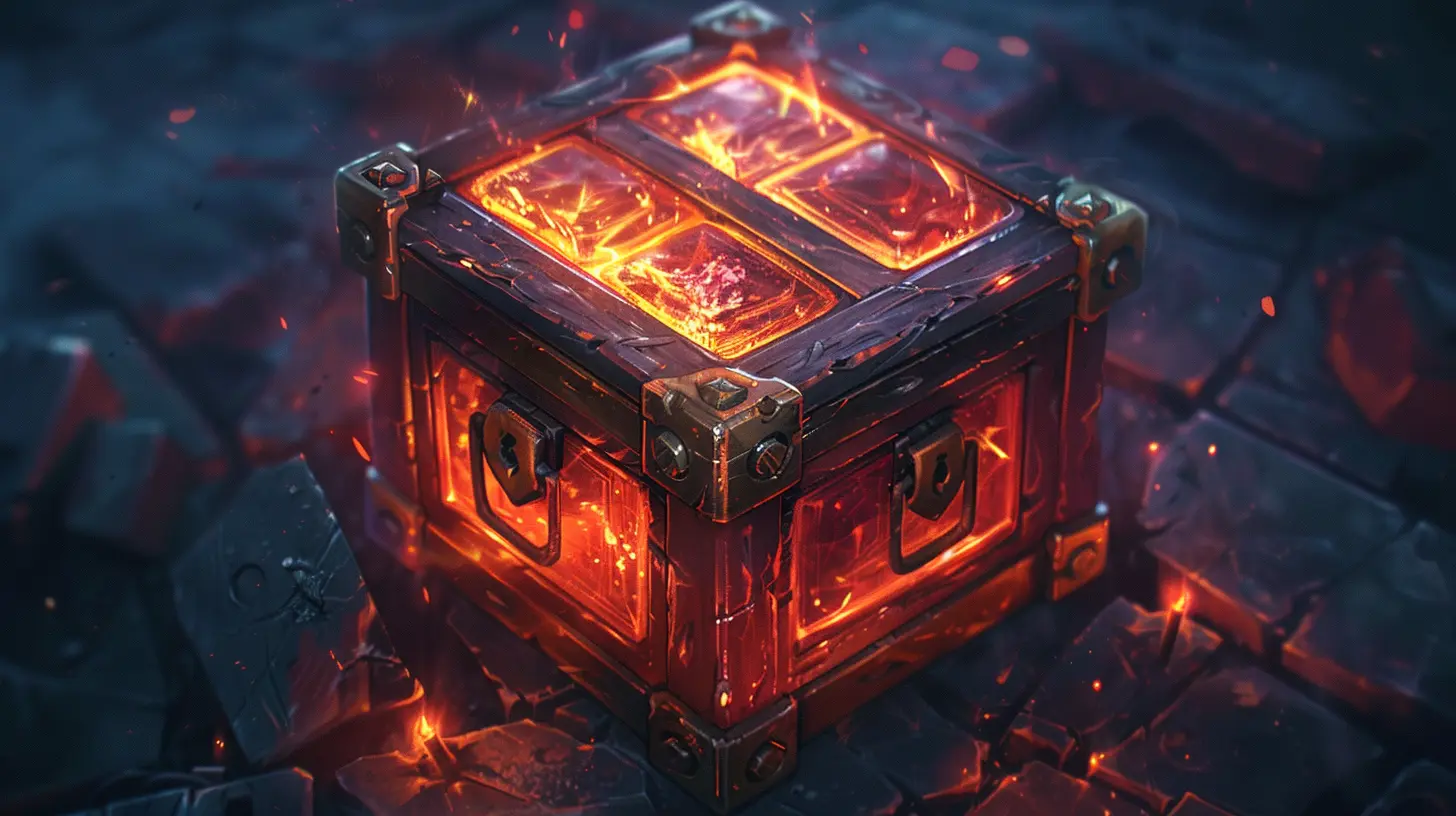How Loot Boxes Reflect Player Psychology
20 September 2025
Let’s face it—we’ve all been there. You’re deep into your favorite game, your heart’s pounding, that loot box just popped up, and suddenly you’re hovering over the 'open' button like it’s Christmas morning. You know it might not have something amazing, but what if it does? That rush, that tingling anticipation? That’s psychology at work, folks.
Loot boxes aren’t just digital gift-wrapped rewards. They're cleverly designed psychological mazes that tap into our brains in ways that even the most seasoned gamer might not realize. This article dives deep into how loot boxes reflect player psychology—and why they’re so darn addictive.
What Are Loot Boxes, Anyway?
Before we unpack all the brainy stuff, let’s get the basics down. Loot boxes are in-game containers that deliver random rewards. You don’t know what you’re going to get until you open them. They might give you a rare skin, a weapon upgrade, or, let’s be honest, a duplicate common item you already have ten of.Sometimes you earn them by gameplay. Other times, you buy them with real money—or virtual currency that you bought with real money (wink, wink). Sound familiar?
Now that we’ve got that settled, here’s where it gets juicy.
The Psychology Behind the Click
Loot boxes are brilliant because they activate fundamental psychological triggers. Game developers didn’t just throw this system in for fun. Oh no. They understood the human brain and used that knowledge to create systems we want to engage with. Let’s break down the science behind the spin.1. The Dopamine Hit
You know that tiny high you get when you win something or achieve a goal? That’s dopamine, the brain’s “feel-good” chemical. Loot boxes are built to trigger a dopamine release.The moment you open that box, your brain lights up with suspense and pleasure. Especially if you snag something rare. It’s similar to the feeling gamblers get when hitting the jackpot. Only in this case, you’re spinning pixels instead of slot reels.
No rare item? Don't worry! That just sets up the anticipation for a better score next time—a classic brain trap.
2. Variable Reward System (aka Digital Slot Machines)
Ever heard of Skinner boxes? No, not your closet. Psychologist B.F. Skinner ran experiments where animals pressed levers for food. He found they’d press more frequently when rewards were random.Guess what? Loot boxes are the human version.
You don’t know what you'll find inside. That unpredictability keeps us locked in. The brain becomes trained to crave the next box, much like pulling the handle on a slot machine.
3. Loss Aversion and the “Sunk Cost” Fallacy
Ever bought five loot boxes and thought, “I’m in too deep—I might as well keep going until I get that epic skin”? Boom. That’s loss aversion.Our brains hate the idea of losing more than they love winning. And once we’ve invested resources (money, time, effort), the “sunk cost fallacy” kicks in. We keep spending because we already spent. We feel like quitting now would mean that effort was wasted.
Spoiler: That’s exactly how casinos keep people gambling. And loot boxes use the same playbook.
The Prestige Factor: Social Status and Cosmetics
Let’s not pretend we don’t peacock a little in-game. Whether it’s a golden gun in a shooter or a legendary skin in an RPG, loot boxes tap into our hunger for status and social validation.Rare items often serve no practical purpose—but they look amazing and show off to everyone around you. Players want to stand out. It’s like rocking designer sneakers in a crowd. Hard to get? Even better.
Why do people spend hundreds just for cosmetic items? Because digital prestige is real, and loot boxes are the gateway.
The Illusion of Control
Game developers love to give us just enough illusion of control to keep us hooked.“Craft three keys to open a box.”
“Earn bonus points the more you open.”
“Drop rates slightly increase with each box.”
All of this tricks our minds into thinking we have a say in the outcome. Spoiler alert: we usually don’t. But believing we do? That’s powerful.
It turns a random, chaotic system into something we think we can beat. And so, we keep trying.
FOMO (Fear Of Missing Out)
“Limited time only!”“Exclusive drop this weekend!”
“Ultra-rare item only in Season 4 boxes!”
Does any of that sound familiar? That’s FOMO being weaponized. Loot box mechanics often rely heavily on time-sensitive or season-specific rewards.
Players feel pressured to act immediately or risk missing out forever. And nothing triggers a reaction faster than the fear of being left behind—especially when your squad already got the rare drop.
Psychological Traps in Monetization
Let’s talk money.Game devs aren’t just tossing loot boxes into the wild for fun. They’re monetizing psychology.
Here’s how they do it:
- Virtual Currency Disconnect: You’re not spending $5. You’re spending 500 V-coins. That disconnect numbs your awareness of real-world money being spent.
- Bundled Deals: “Buy 10 boxes, get 2 FREE!” That’s classic upselling. It makes you feel like you’re getting more value, even if the drop rates don’t change.
- Near Misses: Almost unlocked that ultra-rare? You feel this close. That “almost” is intentional—it keeps you chasing the win.
These tricks would feel shady in any other market. But in gaming? They’re normalized.
Loot Boxes vs. Gambling: A Blurry Line
Here’s the hot debate, and it’s got legal systems around the world scratching their heads: Are loot boxes a form of gambling?You’re spending money (or currency) for a random reward. You don’t know what you’re going to get. Sounds a lot like gambling, doesn’t it?
Some countries have already started cracking down. Belgium, for example, has outright banned loot boxes in games, citing gambling-like mechanics. Others are watching closely.
Regardless of legal definitions, the psychological mechanisms are almost identical.
Why We Keep Coming Back
So, if we know loot boxes twist our brains around… why do we keep engaging with them?Simple: they’re fun.
Humans are wired to chase rewards, seek novelty, and show off achievements. Loot boxes tap into all of that. Done right, they’re entertaining. The problem arises when the line between fun and manipulation gets blurry.
If a game makes you feel like you have to spend to compete or enjoy, that’s not fun—it’s coercion.
Are All Loot Boxes Evil?
Not necessarily. Context matters.When loot boxes are purely cosmetic, optional, and transparent about odds—they can be harmless fun. But when they gate progression or hide pay-to-win perks behind their flashy doors? That’s where things can get predatory.
Developers have a responsibility to respect player psychology, not exploit it. And players? We need to stay self-aware and set our limits.
Tips to Outsmart the Loot Box Trap
Alright, let’s flip the script. Here’s how to keep your head straight:- Set a budget: Decide ahead of time how much you’re willing to spend and stick to it.
- Know the odds: Games are supposed to publish drop rates. Read them.
- Ask yourself “Why?”: Are you opening a box because it’s fun—or because you feel pressured?
- Walk away: If you’re opening boxes out of frustration or obsession, take a break. Seriously.
You’re the player, not the prey.
Final Thoughts: Know Thy Brain
Loot boxes aren’t inherently evil. They’re just tools—tools designed to activate our internal reward systems. Whether they’re fun diversions or psychological traps depends on the design—and how we interact with them.Understanding the psychology behind loot boxes gives us power. It helps us recognize when we’re being nudged, pushed, or subtly manipulated. And that awareness? That’s your ultimate loot.
So next time you hover over that “open” button, pause for a second. Ask yourself: Am I chasing the item—or the feeling?
Sometimes, knowing the difference can make all the difference.
all images in this post were generated using AI tools
Category:
Loot BoxesAuthor:

Pascal Jennings
Discussion
rate this article
1 comments
Allison Pacheco
This article insightfully explores how loot boxes tap into player psychology, leveraging concepts like reward anticipation and gambling instincts. Understanding these influences can help consumers make informed choices and promote healthier gaming experiences.
September 27, 2025 at 3:58 AM

Pascal Jennings
Thank you for your thoughtful comment! I'm glad you found the exploration of player psychology in relation to loot boxes insightful. Promoting informed choices is essential for healthier gaming experiences.


